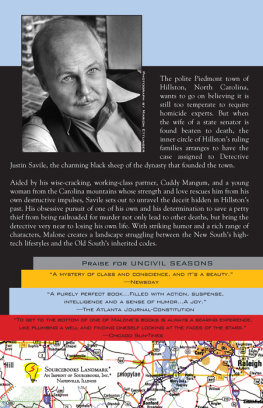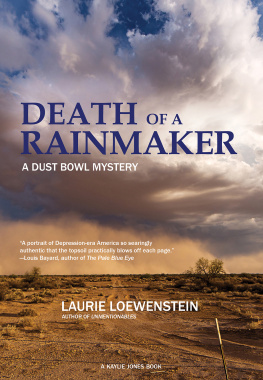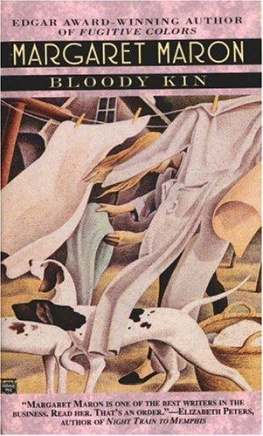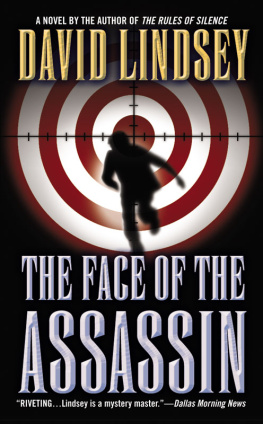Richard Wasowski - Frankenstein
Here you can read online Richard Wasowski - Frankenstein full text of the book (entire story) in english for free. Download pdf and epub, get meaning, cover and reviews about this ebook. year: 2014, publisher: Grand Central Publishing, genre: Science. Description of the work, (preface) as well as reviews are available. Best literature library LitArk.com created for fans of good reading and offers a wide selection of genres:
Romance novel
Science fiction
Adventure
Detective
Science
History
Home and family
Prose
Art
Politics
Computer
Non-fiction
Religion
Business
Children
Humor
Choose a favorite category and find really read worthwhile books. Enjoy immersion in the world of imagination, feel the emotions of the characters or learn something new for yourself, make an fascinating discovery.

- Book:Frankenstein
- Author:
- Publisher:Grand Central Publishing
- Genre:
- Year:2014
- Rating:4 / 5
- Favourites:Add to favourites
- Your mark:
- 80
- 1
- 2
- 3
- 4
- 5
Frankenstein: summary, description and annotation
We offer to read an annotation, description, summary or preface (depends on what the author of the book "Frankenstein" wrote himself). If you haven't found the necessary information about the book — write in the comments, we will try to find it.
Frankenstein — read online for free the complete book (whole text) full work
Below is the text of the book, divided by pages. System saving the place of the last page read, allows you to conveniently read the book "Frankenstein" online for free, without having to search again every time where you left off. Put a bookmark, and you can go to the page where you finished reading at any time.
Font size:
Interval:
Bookmark:
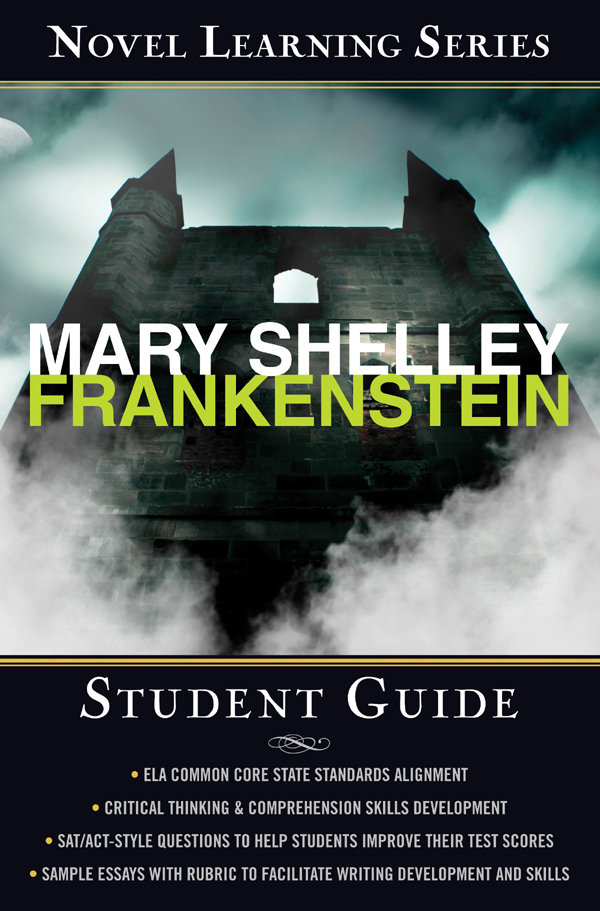
In accordance with the U.S. Copyright Act of 1976, the scanning, uploading, and electronic sharing of any part of this book without the permission of the publisher constitute unlawful piracy and theft of the authors intellectual property. If you would like to use material from the book (other than for review purposes), prior written permission must be obtained by contacting the publisher at permissions@hbgusa.com. Thank you for your support of the authors rights.
To receive special offers, bonus content, and news about our latest ebooks and apps, sign up for our newsletters.
Sign Up
Or visit us at hachettebookgroup.com/newsletters

For more about this book and author, visit Bookish.com.
This book is a work of fiction. Names, characters, places, and incidents are the product of the authors imagination or are used fictitiously. Any resemblance to actual events, locales, or persons, living or dead, is coincidental.
Student Guide copyright 2013 by Willow Holdings, Inc. and Hachette Book Group, Inc.
Cover design by Brigid Pearson. Cover photo from Getty / Stock4B Creative.
Cover copyright 2013 by Hachette Book Group, Inc.
All rights reserved. In accordance with the U.S. Copyright Act of 1976, the scanning, uploading, and electronic sharing of any part of this book without the permission of the publisher constitute unlawful piracy and theft of the authors intellectual property. If you would like to use material from the book (other than for review purposes), prior written permission must be obtained by contacting the publisher at permissions@hbgusa.com. Thank you for your support of the authors rights.
Frankenstein or The Modern Prometheus by Mary Shelley was originally published in 1818, revised in 1831. The text in this edition is the revised edition of 1831.
The Novel Learning Series is a registered trademark of Willow Holdings, Inc.
Grand Central Publishing
Hachette Book Group
237 Park Avenue, New York, NY 10017
hachettebookgroup.com
twitter.com/grandcentralpub
First ebook edition: September 2014
Grand Central Publishing is a division of Hachette Book Group, Inc.
The Grand Central Publishing name and logo is a trademark of Hachette Book Group, Inc.
The Hachette Speakers Bureau provides a wide range of authors for speaking events. To find out more, go to www.hachettespeakersbureau.com or call (866) 376-6591.
The publisher is not responsible for websites (or their content) that are not owned by the publisher.
ISBN 978-1-4555-8857-2
E3
The Novel Learning Series gratefully acknowledges the contributions of the following people: Micah Sparks, Susan Copeland, Kallie Shimek, Emily Griffin, Melissa Nicholas, Rich Wasowski, Deborah Sloan, Rachel Bressler, and Pete Knapp.
T he purpose of the Novel Learning Series is threefold:
1. to provide you with an opportunity to read and analyze a novel independently,
2. to provide study questions and writing prompts that are aligned with the Common Core State Standards for English Language Arts, and
3. to prepare you for rigorous high-stakes tests, such as the SAT and ACT, by providing multiple-choice questions that are similar in both form and content to the questions on those tests.
The first part of this book contains the novel Frankenstein, which is divided into seven sections for the purpose of this guide: the letters through chapter 2; chapters 3 through 6; chapters 7 through 10; chapters 11 through 14; chapters 15 through 18; chapters 19 through 22; and chapters 23 and 24. After each of these seven sections of the novel, there is a series of multiple-choice questions. You should read the chapters of the novel first and then answer the questions. The information following each question explains how to answer the preceding question. If you are confident in your answer, use this information to confirm your thought process. If you are unsure of how to answer the question, the explanation can guide your decision-making process.
The final part of this guide contains critical reading questions related to a given passage, short answer assignments, and essay assignments. A rubrica list of various essay elements and descriptions used to gauge quality in essay responsesis also provided. The rubric and the guide to understanding the rubric are designed to walk you through the writing process as you organize your thoughts and craft your response.
The British Romantic period (17981837), a reaction to the order and rationalism of the Age of Reason, began with the publication of Lyrical Ballads, a collection of poems by William Wordsworth and Samuel Taylor Coleridge. Two of these poems, The Rime of the Ancient Mariner and Lines Composed a Few Miles above Tintern Abbey, play an important role in Frankenstein. The period is considered to have ended with the coronation of Queen Victoria.
Romanticspoets, novelists, visual artists, musicians, and philosophersfavored individualism, the imagination, and nature in all its aspects over the harmony and stability of the Enlightenment. They also valued personal freedom and experiencerebelling against any form of tyranny, found comfort and peace in nature, and expressed concern and sympathy for the common man. Romantics also explored the psychological effects that death had on individuals and took an interest in past legends, especially medieval ones, as well as the supernatural.
One important milestone of the Romantic era was the rise of the gothic novel. The atmosphere of these novels was one of dread, fear, and suspense; the setting was usually isolated, and they usually had an involvement with lonely and melancholic events and themes. The thematic topic of revenge permeates gothic texts. Gothic characters also tended to be specific types: the male gothic hero typically displayed charm and charisma in lieu of personal goodness, and the ideal female characters were beautiful, docile, generous, devoted, passive, and affectionate.
At this time, read the letters through chapter 2, and answer the questions that follow.
St. Petersburgh, Dec. 11th, 17
To Mrs. Saville, England.
You will rejoice to hear that no disaster has accompanied the commencement of an enterprise which you have regarded with such evil forebodings. I arrived here yesterday, and my first task is to assure my dear sister of my welfare and increasing confidence in the success of my undertaking.
I am already far north of London, and as I walk in the streets of Petersburgh, I feel a cold northern breeze play upon my cheeks, which braces my nerves and fills me with delight. Do you understand this feeling? This breeze, which has travelled from the regions towards which I am advancing, gives me a foretaste of those icy climes. Inspirited by this wind of promise, my daydreams become more fervent and vivid. I try in vain to be persuaded that the pole is the seat of frost and desolation; it ever presents itself to my imagination as the region of beauty and delight. There, Margaret, the sun is forever visible, its broad disk just skirting the horizon and diffusing a perpetual splendour. Therefor with your leave, my sister, I will put some trust in preceding navigatorsthere snow and frost are banished; and, sailing over a calm sea, we may be wafted to a land surpassing in wonders and in beauty every region hitherto discovered on the habitable globe. Its productions and features may be without example, as the phenomena of the heavenly bodies undoubtedly are in those undiscovered solitudes. What may not be expected in a country of eternal light? I may there discover the wondrous power which attracts the needle and may regulate a thousand celestial observations that require only this voyage to render their seeming eccentricities consistent forever. I shall satiate my ardent curiosity with the sight of a part of the world never before visited, and may tread a land never before imprinted by the foot of man. These are my enticements, and they are sufficient to conquer all fear of danger or death and to induce me to commence this laborious voyage with the joy a child feels when he embarks in a little boat, with his holiday mates, on an expedition of discovery up his native river. But supposing all these conjectures to be false, you cannot contest the inestimable benefit which I shall confer on all mankind, to the last generation, by discovering a passage near the pole to those countries, to reach which at present so many months are requisite; or by ascertaining the secret of the magnet, which, if at all possible, can only be effected by an undertaking such as mine.
Font size:
Interval:
Bookmark:
Similar books «Frankenstein»
Look at similar books to Frankenstein. We have selected literature similar in name and meaning in the hope of providing readers with more options to find new, interesting, not yet read works.
Discussion, reviews of the book Frankenstein and just readers' own opinions. Leave your comments, write what you think about the work, its meaning or the main characters. Specify what exactly you liked and what you didn't like, and why you think so.




